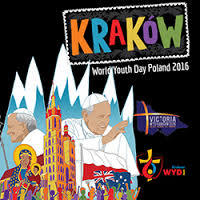Many readers would be familiar by now with the recent news of Leah Libresco, who previously blogged at Patheos’ atheist portal, under the banner: Unequally Yoked: a geeky atheist picks fights with her Catholic boyfriend. Not anymore. Now Libresco blogs under the banner: Unequally Yoked: a geeky convert picks fights in good faith.
Since Libresco joined Max Lindeman over at Patheos’ Catholic portal, Lindeman was bound to blog about Libresco’s high-profile conversion sooner or later. And so he has, providing a typically thoughtful meditation on intellectual conversion and the evangelisation of our modern culture. He makes many claims in that post which I agree with, but I’m not so sure about this one:
These days, Christians had better sound smart. The dice are cogged against authority. Cite the Bible, any pope, or either Vatican Council, and you’ll probably hear “So what?” If Christianity wants to survive as a cultural force, or inform public policy, it had better explain itself in terms intelligible to people who reject its supernatural basis.
It’s not crystal clear what Linderman means by this. If he means that we shouldn’t argue from authority, and fundamentalism is better eschewed, then of course I agree whole-heartedly. We must argue from reason — but not rationalism. Just because some of our listeners reject our supernatural basis, doesn’t mean we should reject our supernatural arguments.
In the seminary, though, I was taught otherwise. Here are a few examples of the claims some of our professors made:
- We can only win the pro-life debates by appealing to a secular humanist account of human rights and dignity. Leave God out of it.
- We can only win the debate about gay marriage by appealing to the natural institution of marriage, and the precedent of cultural history. Leave the Theology of the Body out of it.
- We can only win the God debate by invoking philosophical grounds for theism. Leave Christian revelation out of it.
Sometimes these rules are good to follow. In the political campaigns to introduce euthanasia, it is advisable for Catholics to cultivate a broad alliance with other interested parties — the medical practicioners who do not want a license to kill patients, the lobby groups who represent the most likely targets of euthanasia, other religious objectors. In that case, it is much better to argue from common ground, and leave the Catholic apologetics for another time.
But over all, I think these rules have been disastrous. The Catholic Church has been on the backfoot for years, and still we are told that the only way forward is to keep doing what we’re doing? “Argue from the natural law (but don’t call it natural law), and people of different faiths and no faith will be convinced. (And ignore the fact that we’re even losing the case with Catholics themselves!)”
An example of where this approach won’t work, I think, is the debate over same sex marriage. Here we have an opportunity to present the good news about sex and marriage which is very specific to the Christian tradition. It’s deeply theological and even supernatural, so it’s going to offend some people, and bamboozle others. But it’s also deeply attractive, and tragically unknown by the majority of Christians themselves — including couples who have received the sacrament of marriage!
The good news is attractive because Christ is attractive. But in a well-intentioned bid to avoid offence and foster harmony, we sometimes forget to mention Christ! The Lord’s remarks about the light and the bushel come to mind.
This post was prompted by a presentation at the clergy conference I’ve been attending. Dr Gerard O’Shea argued that an exaggerated distinction between grace and nature has produced a sort of dualism which impedes the Church’s evangelisation. His paper is available to download, but I haven’t had time yet to read it. Here’s an appetiser:
In moving into the Roman world, the first Christians encountered a secular culture whose social, political and cultural characteristics bore a striking resemblance to the contemporary period. Yet these Christians did not feel constrained to present only those aspects of their message that would be acceptable. For most of its history, the presentation of a Christian message in the “public square” has entailed both theological and philosophical perspectives. Today, Catholics seem “self-limited” by an unspoken demand that they argue solely from philosophical and scientific positions in public debates. This approach often fails to present a distinctively Christian viewpoint. As early as 1946, Henri de Lubac pointed out that this side-lining of the Christian view was not solely the result of secularist agitation. Since the sixteenth century, the generally accepted notion that human reality is composed of two separate dimensions – natural and a supernatural – has given the impression that one can speak of a discrete natural order which is unaffected by grace.
When Catholics confine themselves to naturalistic arguments, they deceive no one. Secularists – who argue from their own perspective of “belief” – are able to accuse their Catholic opponents of having a hidden agenda, and of lacking the courage of their convictions by concealing what really motivates them. Any movement away from this situation is likely to be met with derision. Nevertheless, while neither Christians nor Secularists should impose their political views on others, Catholics should feel free to mount the full range of their arguments in public and should reject the notion that they are bound by rules of engagement set by their intellectual opponents.
I’m looking forward to reading it, and posting a proper treatment. In the meantime though, I have located a short passage from Fulton Sheen’s autobiography which seems to vindicate part of the thesis. Here the Archbishop recalls a trip to Athens, where he followed the footsteps of St Paul:
Every night I went to Mars Hill and reread that famous speech of St Paul in chapter 17 of Acts. From the point of view of rhetoric and pedagogy it was a perfect speech. First he began with a tribute that was to win their souls. Paul spoke about how God made the universe, was the Lord of Heaven and earth, did not dwell in temples made with hands (such as the beautiful one he was looking on); that He made of one blood every nation of men that dwelled upon the face of the earth, fixing the limits and extent of their habitation, and inspiring them to seek God even though they might be groping in the darkness. God, Paul said, was not far from any one of them. As the poet put it, “We are all His offspring.” Paul then jumped to the subject of Judgement and the Resurrection.
He made only two converts — a man named Dionysius and a woman named Damaris. The talk was not a success. It was rather one of Paul’s great failures. He left the city immediately after the talk and walked to Corinth. He never went back to Athens, never wrote a letter to the Athenians, and there is no record he established a church in Athens.
As I sat evening after evening reading that speech, it finally dawned on me why St Paul had failed in that talk. He had failed to mention the Name of Christ and His Crucifixion. I am sure that as he walked that dusty road between Athens and Corinth he must have said over and over again what he later wrote to the Corinthians: “I am resolved among you to know nothing but Christ and Him Crucified.”





Christ crucified always, then connect it to everything else, as it is. Ask the Holy Spirit for the right words. They come. Discourse with the aim of evangelisation, severed from Christ, is utterly meaningless. We have the responsibility to tell people God loves them and died for them so their sins can be forgiven. Sometimes in words they can understand. People are starving for the Truth.
Thank you Father for your Blog. John Canavan auctioned at the Life Coalition Dinner on June 23. He was his superb self, and he is slowly recovering his fitness.
On the argument from Faith versus nature there is no clear answer. We must be prepared for both. We need to educate Catholics on both. The Church condemns abortion because all human life is sacred from nature, and also because God has created all in His image. Gos bless your ministry.